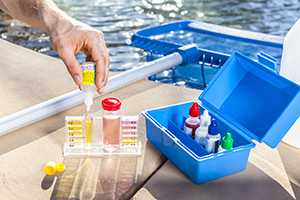Pool & Hot Tub/Spa Inspections
 Pool regulations and codes are developed by government agencies to make sure that treated recreational water facilities (for example, pools, hot tubs, and water parks) provide a clean, healthy, and safe environment for the public. These regulations set minimum standards (such as the amount of chlorine that should be in the pool) to decrease the public’s risk of illness and injury. To ensure that these regulations are followed, state and local officials regularly inspect treated recreational water venues.
Pool regulations and codes are developed by government agencies to make sure that treated recreational water facilities (for example, pools, hot tubs, and water parks) provide a clean, healthy, and safe environment for the public. These regulations set minimum standards (such as the amount of chlorine that should be in the pool) to decrease the public’s risk of illness and injury. To ensure that these regulations are followed, state and local officials regularly inspect treated recreational water venues.
Inspections are an essential part of every state or local environmental health aquatic program. Analyzing data collected during inspections of public aquatic venues can help these programs examine immediate closures and violations of public health code and help prioritize efforts to protect public health. For example, environmental health practitioners can conduct more frequent, or risk-based, inspections of aquatic facilities (and their venues) with a history of immediate closures and educate operators about proper operation and maintenance related to the most frequently identified violations. This is especially important for programs, whose tightening budgets require them to make strategic decisions on how to best use their limited resources to effectively protect the public’s health.
The pages below provide links to pool/spa inspector training programs and detailed recommendations for creating a pool inspection database.
- Page last reviewed: May 4, 2016
- Page last updated: May 4, 2016
- Content source:


 ShareCompartir
ShareCompartir